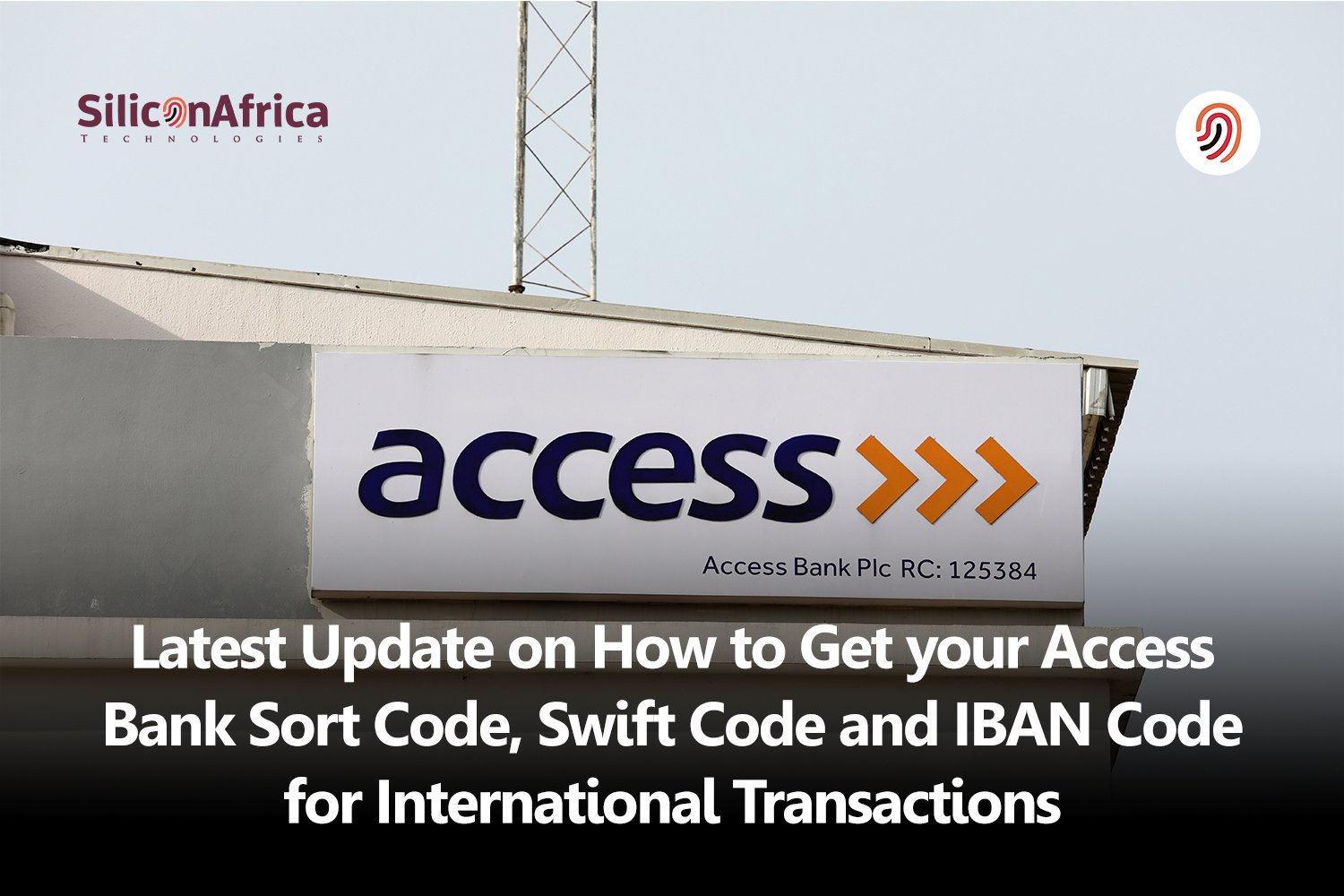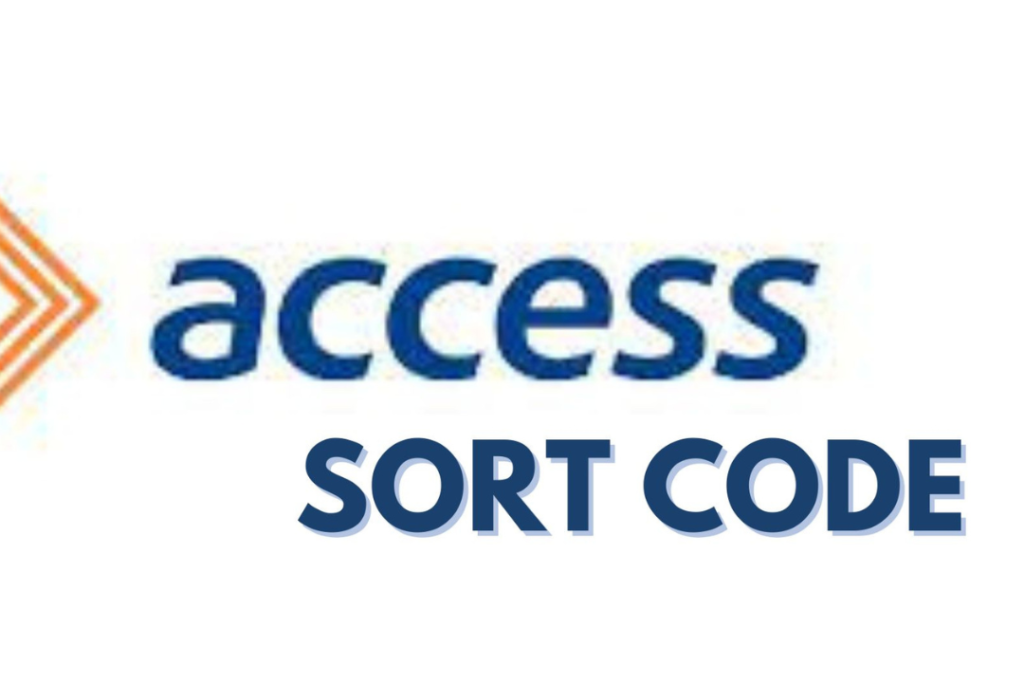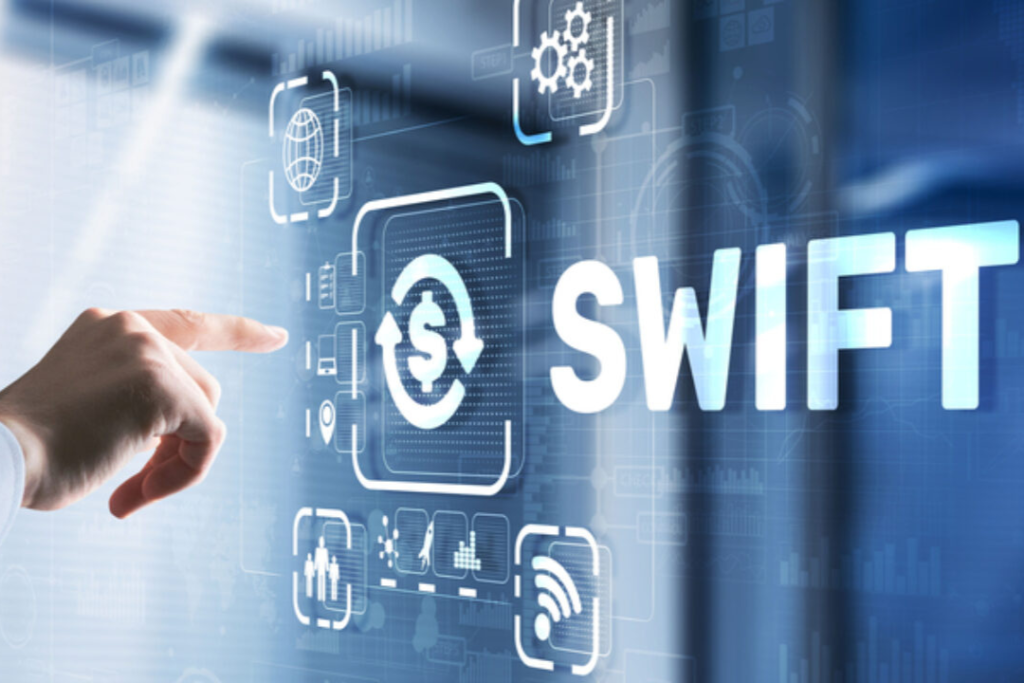Physical Address
60 Ekwema Cres, Layout 460281, Imo
Physical Address
60 Ekwema Cres, Layout 460281, Imo

As an Access Bank customer, you may have needed to conduct international transactions. If you’ve ever been in this circumstance, you’ll understand how important it is to have the correct codes on hand.
To conduct international transactions, you’ll need your Access Bank sort code, Swift code, and IBAN code in Nigeria. These codes are critical bits of information needed to ensure that your money arrives at its intended destination quickly and safely.
In this article, we’ll go over the most recent updates on how to receive your Access Bank sort code, Swift code, and IBAN code in Nigeria for seamless global transactions. So, whether you’re sending or receiving money internationally, knowing how to obtain and use these codes properly is critical.
Let’s go over the procedure step by step, making sure you have all of the information you need to navigate the world of international banking with confidence.

The Access Bank sort code is a unique identification number provided to each Access Bank location. The sort code is used to determine the bank and branch where an account is held. In other words, the sort code assists in directing funds to the appropriate Access Bank branch where an account is housed.
For example, if someone wishes to send money to your Access Bank account, they must supply your account number and the sort code of the Access Bank branch where your account is located. Even if your account number is valid, the money will not be transferred to your account unless you provide the sort code.
It’s important to understand that the Access Bank sort code is not the same as your account number. Your account number is unique to your account, but the sort code is exclusive to the Access Bank branch where your account is held. As a result, if someone requests to send money to your account, you must always supply both your account number and the Access Bank sort code.
It is important to know your sort code, as it is a unique identifier for your bank branch. There are several methods to locate your Access Bank sort code, depending on what’s most convenient for you:
Access Bank maintains a webpage specifically listing branch locations and their corresponding sort codes. This resource is helpful if you need to double-check the code or want to find the code for a specific branch. You can also log in to your Access Bank account to get your Access Bank sort code, follow these steps:
The sort code is often printed directly on your physical bank statements or cheque book. It’s a common practice for banks to include this information for reference during transactions.
If you do not have access to the internet, cannot log in to your account or you prefer talking to a representative, you can contact Access Bank customer service through their mobile app or call their contact center or visit any Access Bank branch near you. Their staff can quickly retrieve your sort code and answer any questions you might have.

Swift which stands for the Society for Worldwide Interbank Financial Telecommunications is a standard format of Bank Identifier Code (BIC). The Swift Code is an international standard that is used to identify financial institutions globally. It is an 8- or 11-character identifier that identifies a certain bank or branch.
Access Bank uses the Swift Code ABNGNGLA. This code is used for international wire transfers to and from Access Bank accounts. It’s vital to remember that the Swift Code is not the same as the bank’s routing or account number.
To receive money from a foreign nation, the sender must submit your bank’s Swift Code, account number, and other relevant information such as your name and address. The same goes for sending money to a foreign country. The Swift Code ensures that funds are routed to the appropriate bank and branch.
When sending or receiving international wire transfers, make sure you enter the correct Swift Code. Providing the incorrect code can cause delays or even a failed transfer.
Read Also – Heritage Bank Code for Transfer and Other Banking Transactions
Getting your Access Bank Swift Code is a basic process. Here are the techniques for obtaining your Access Bank Swift code:
Your Access Bank Swift code is normally found on your bank statement. Check your statement for the Swift code, or have your bank representative supply it for you.
Access Bank gives Swift Code information on their website. You can discover it in their “Swift Codes” or “Credit Inflow Details” document. These documents contain the Swift Code (ABNGNGLA) and beneficiary bank information for several currencies (USD, EUR, and GBP), including account numbers and intermediary bank information.
If you still can’t find your Access Bank Swift code, contact their customer care team. They will be able to supply you with the code by phone or email. Make sure you have your account information and identity documents on hand when you call them.
You can also use a Swift code search tool to locate your Access Bank Swift code. These tools are available online and completely free to use. Simply enter your bank’s name and location, and the program will supply you with the Swift code.
It is crucial to note that Swift codes might vary over time, so double-check the code before attempting any international wire transactions. Also, to minimize delays or problems, ensure that you deliver the correct Swift code to the sender or recipient of payments.

IBAN stands for International Bank Account Number. When conducting international money transfers, you will be assigned a unique code that will identify your bank account. Essentially, it is a method for ensuring that your cash is delivered to the correct recipient.
IBAN codes are made up of letters and numbers. In Nigeria, the Access Bank IBAN code has 18 digits. This code is required when sending or receiving money from outside Nigeria.
International money transfers may be delayed or denied if they do not include an IBAN code. This is because banks use the code to confirm the recipient’s account information and ensure that funds are delivered to the correct location.
It’s vital to understand that the IBAN code is distinct from your standard bank account number. While your account number is unique to you and your bank, the IBAN code is used exclusively for overseas payments.
Overall, the Access Bank IBAN code is critical information for anyone sending or receiving international funds. You may assist ensure a smooth and successful transfer by keeping this code handy and ensuring that all other relevant information is right.
Also Read – Access Bank Transfer Codes For Money Transfers and Bill Payments 2025
Depending on your preferred technique, you can retrieve your Access Bank IBAN code using one of the following methods:
Access your online banking account and select your account summary or online statement. Your IBAN code may be clearly displayed there.
If you use the Access Bank mobile app, go to the account information screen. The IBAN code, like that of online banking, may be easily accessible within the application.
If online techniques are ineffective, contact Access Bank’s customer support department directly. A customer care professional can extract and provide your IBAN code over the phone or over secure messaging on the bank’s platform.
While the website may not display your IBAN code directly, it does provide a useful resource. Access Bank has published a document giving sample IBAN codes for several currencies [Access Bank Plc Sort Codes]. This page illustrates the format of an IBAN code, which might be beneficial in understanding the structure of your specific code.
Remember that your IBAN code is unique to the currency of your account. If you have multiple accounts in different currencies, each one will have its own IBAN code.
Read Also – Latest Standard Bank Branch Code in South Africa 2025
Moving money across borders can feel like navigating unfamiliar territory, but with Access Bank, international transfers can be simple. Here’s a thorough guide to ensuring a smooth journey, whether you’re a seasoned traveler or a first-time sender/receiver.
Are you sending money abroad (outgoing remittance), either to help a family member or to pay for an overseas purchase? Or are you expecting payments from outside (incoming remittance), perhaps from a client or family living abroad? Knowing this will help decide the method and requirements.
Accuracy is critical to avoiding delays and errors. You will need information about yourself, the recipient (complete name, address, bank account information for transfers), and the transaction itself (amount and currency sent/received). Double-check everything thoroughly!
International transactions frequently include fees, such as currency conversion fees and transfer processing costs. Access Bank offers affordable rates, but it’s a good idea to ask about any additional fees upfront. This openness enables you to budget properly while avoiding unexpected deductions.
Currency exchange is required when making international transfers. Exchange rates fluctuate, thus it’s important to be aware of the current rates. Some banks, including Access Bank in some situations, may give the opportunity to lock in a rate to safeguard you from potential fluctuations that affect the final amount received by the receiver.
Inform the individual who will receive the money about the transfer. Inform them of the expected delivery date and amount (including any fees taken) to avoid confusion or delays on their end. This transparency fosters confidence and promotes a smooth experience for both parties.
Keep copies of your transaction receipts and confirmations for future reference. This can be useful for tracking, resolving problems, or creating tax documents (if necessary).
By following these procedures and remaining informed, you can make sure your overseas transactions with Access Bank run smoothly and without stress. Remember, a little planning and good communication may go a long way toward securing a flawless international money transfer.
Understanding Access Bank’s sort code, Swift code, and IBAN code is critical for conducting smooth international transactions. Your sort code identifies your individual branch, whereas Swift code allows for rapid global transfers.
Additionally, having an IBAN code simplifies transactions within Europe and other countries. By becoming familiar with these codes, you can guarantee that your financial transactions run smoothly.
If you find this article helpful, kindly share your thoughts in the comment section and follow us on our social media platforms on X (Silicon Africa (@SiliconAfriTech)), Instagram (SiliconAfricaTech), and Facebook (Silicon Africa).
Yes, Access Bank customers can receive payments in US dollars from friends and relatives living abroad.
A single financial institution may have many SWIFT codes indicating different branches. Before sending money, always double-check with the recipient to confirm you have the correct SWIFT code, as financial institutions sometimes have many SWIFT codes that differ by only a few letters or numbers.
No, you cannot use your Access Bank sort code, fast code, or IBAN code to conduct domestic transactions. These codes are particular to international transactions. For domestic transactions, you’ll need your bank’s routing or transit number.